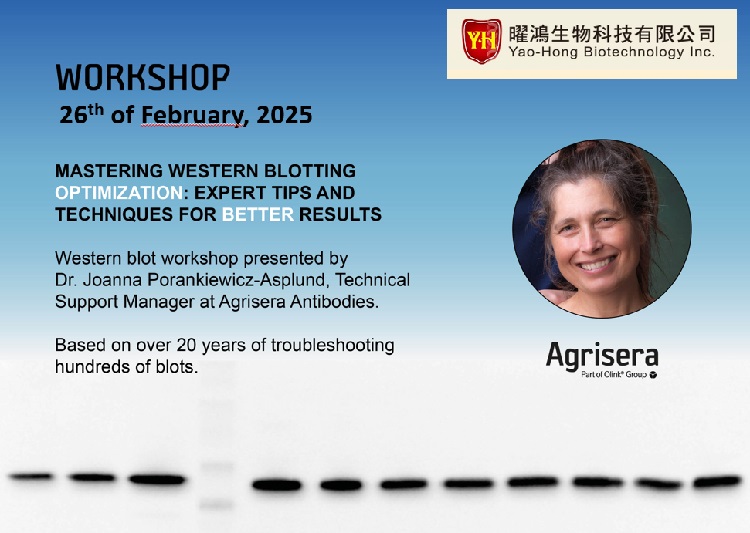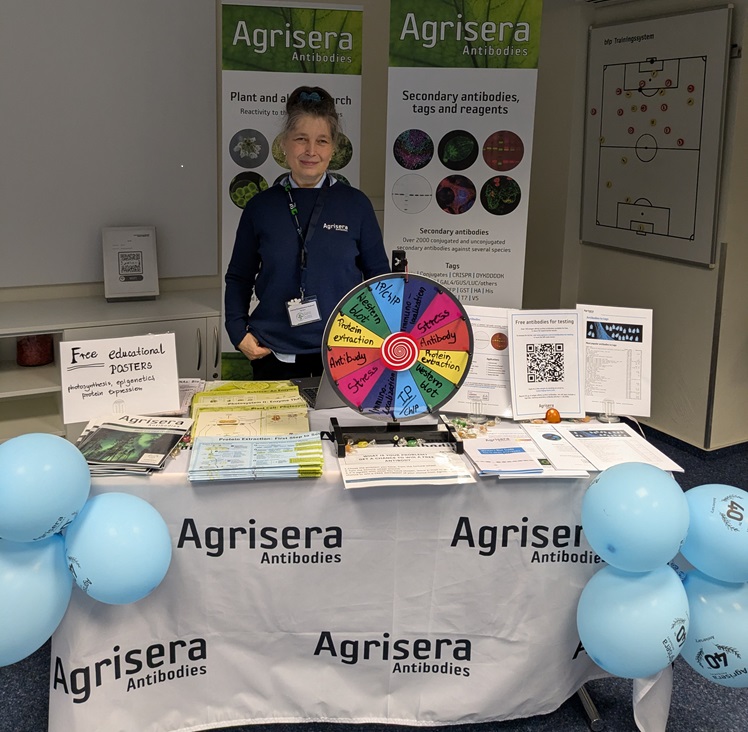Prof. Junpeng Zhan
In celebration of Agrisera’s 40th anniversary in 2025, we have conducted a series of short interviews with scientists, who have shared their knowledge, ideas and laboratory experience, contributing to the development of Agrisera's antibody collection for plant and algal science. The aim is to honor their contributions to the field, as well as inspire others to venture into plant science, with the support of Agrisera antibodies.

Dr. Junpeng Zhan, is an Associate Professor at Huazhong Agricultural University in Wuhan, China. During his postdoctoral research in Prof. Blake Meyers' lab at the Donald Danforth Plant Science Center, he collaborated with Agrisera in the development of antibodies to proteins involved in plant RNA pathways. His current research focuses on the molecular mechanisms controlling protein content and quality in maize, addressing key challenges in agriculture and food security, with the support of Agrisera antibodies. Dr. Zhan is also a co-author of Agrisera's Educational Posters on Plant Small RNAs and Plant Argonautes.
- Please tell us about yourself and your research/institution.
My name is Junpeng Zhan, an Associate Professor in the College of Life Science and Technology, Huazhong Agricultural University, Wuhan, China. My current research focus is molecular mechanisms controlling protein content and quality in maize. I completed my PhD at the School of Plant Sciences, University of Arizona, where my research focused on transcriptional regulation of cell differentiation, and storage functions of the maize endosperm. I carried out my postdoctoral research at the Donald Danforth Plant Science Center, where I studied the biogenesis, functions, and evolution of reproductive phasiRNAs in maize and related species.
About Huazhong Agricultural University: Huazhong Agricultural University (HZAU), located in Wuhan, China, is renowned for its focus on agricultural sciences, forestry, and environmental studies. Established in 1898, HZAU has evolved into a key player in agricultural research and education, fostering innovation and sustainability. The university offers a diverse range of programs in fields such as crop production, animal science, and biotechnology, attracting students and researchers from around the globe. With its state-of-the-art facilities and vibrant campus life, HZAU is committed to addressing global challenges in food security and sustainable agriculture, making it an ideal choice for aspiring agricultural professionals seeking to make a positive impact.
- What motivated you to get into plant science?
Growing up in a small town surrounded by rice fields and vibrant vegetable gardens instilled in me a deep appreciation for the natural world and its intricate processes. My grandparents, dedicated farmers, not only taught me the value of hard work and perseverance but also sparked my curiosity about agriculture and the science behind it. This interest was further nurtured during high school when I became fascinated by Mendelian genetics. Learning about how traits are inherited in plants revealed the underlying beauty of nature and inspired me to pursue plant science.
- How have you used (Agrisera) antibodies in your research?
In my postdoctoral research, I had the opportunity to work in a small RNA-focused lab where we investigated the roles of Argonaute, Dicer-like, and RNA-dependent RNA polymerase (RDR) proteins in maize, rice, and other related crop species. Our collaboration with Agrisera was invaluable as we worked together to develop a range of antibodies targeting these crucial small RNA pathway proteins. Recently, we have begun testing our mutant materials using the antibodies developed by Agrisera, which has allowed us to gain deeper insights into the functional dynamics of these proteins in our research. This collaboration has significantly enhanced our ability to analyze and understand the molecular mechanisms underlying small RNA pathways. In my current research, I am starting a new collaboration with Agrisera to develop antibodies for seed storage proteins and their regulators in maize. These antibodies have the potential to help improve seed protein content and quality in economically important cereal crops.
- Any further comments?
It has been truly a pleasure working with Dr. Joanna Porankiewicz-Asplund and her colleagues at Agrisera. The antibodies that we collaborate to generate will be useful for plant biology research and help addressing the challenges in food security and sustainable agriculture.
Links
• Prof. Junpeng Zhan, Huazhong Agricultural University
• Agrisera antibodies to Plant RNA
• Educational Posters: Plant Small RNAs and Plant Argonautes





